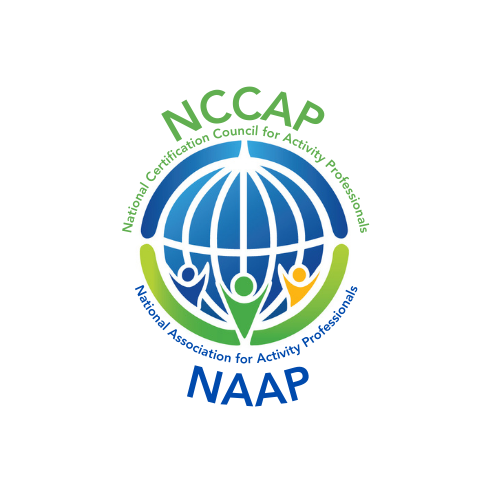- Home
- About
- Certification
- Continuing Education
- Forms
- Resources
- Take A Class
- My Profile
Nationwide Online Courses From MEPAP Instructors
The Modular Education Program for Activity Professionals (MEPAP) is the required curriculum for NCCAP Certification. The MEPAP was created by the National Association of Activity Professionals (NAAP) as the only accepted curriculum required to attain the knowledge and skills to meet the Professional Standards of Practice of the Activity Profession. The Learning Objectives and Competencies of the MEPAP are validated by academic and healthcare experts and reviewed regularly by NCCAP's independent Clinical and Curriculum Advisory Board. The MEPAP is a two-part course of 180 hours each that includes both study and practicum. Due to the absence of mandatory State licensing for the Activity Profession, the MEPAP is required to earn NCCAP certification and meet the Professional Standards of Practice for the Activity Profession. NCCAP maintains an Allied Health Professional Track and an Experiential Track for certification that does not require the MEPAP and thereby fulfils credentialing requirements of NCCA, ICE and ANSI.
MEPAP courses are offered nationwide by Instructors who complete rigorous training and undergo a peer-review process. This ensures students receive the highest knowledge and skills and are prepared to take the National Certification Exam administered by the independent testing company Prometric, Inc. Instructors may use a variety of approved educational delivery methods: remote via a virtual classroom, face-to-face in person, online, self-study, guided study or blended. As each Instructor independently sets their structure and fee, we encourage you to investigate the following list to find an Instructor that meets your needs and interests. Contact Instructors for a class and fee schedule. Note: "-1" at the end of Approval Number means only MEPAP 1 is taught. 1. Instructor Led Virtual Online Class. Using platforms such as zoom, webex, etc.
2. Instructor Supported Online Class. Led/Technology-Supported. Involves cohorts starting together and going through coursework in a synchronous manner, online reading and exercises, and electronic message boards. Could include the use of Learning Management System (LMS), pre-recorded lessons, videos or DVDs
3. Self-Paced Online Class. Involves mainly self-study with instructor support as needed. This delivery method could include a combination of LMS, videos, DVDs, online reading and exercises or similar. These classes are open enrollment and you can start at anytime
4. In-Person Class. Class would be held at a physical location
|





